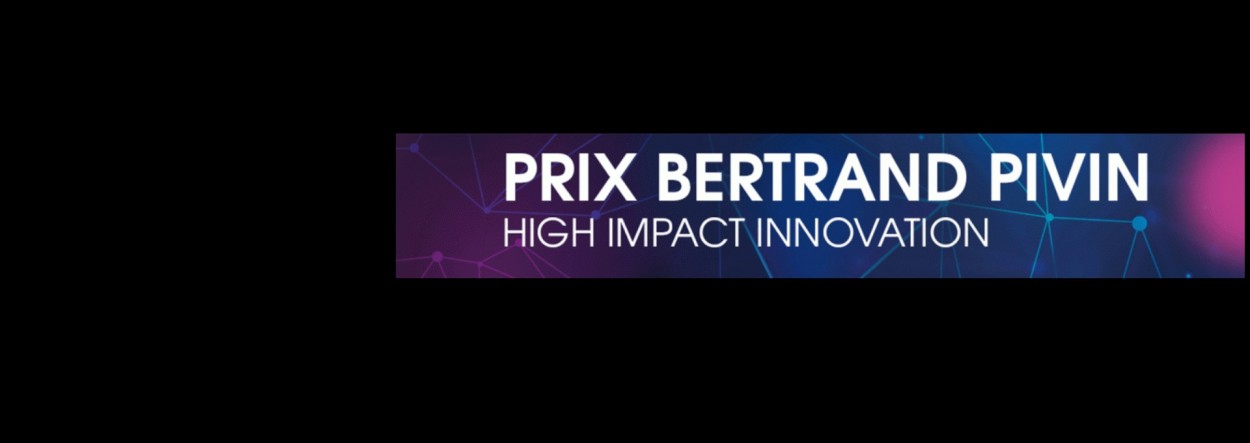Orakl, HUVY and Noctua Care, winners of the 2023 Bertrand Pivin Awards

Created in 2018 thanks to the generosity of Bertrand Pivin (X 1980), the Awards aim to promote technological innovation among students at École Polytechnique and the Institut Polytechnique de Paris, and to contribute to the emergence of entrepreneurial projects with very high potential and societal impact. At the end of the jury meeting held on April 27th, three projects were selected as the winners of this 6th edition: Orakl, HUVY and Noctua Care.
Orakl: tumor avatars to predict patient response to new treatments
Cancer is a major challenge for Western healthcare systems. Despite exponentially increasing R&D budgets and spectacular advances in biology in recent years, the success rate of clinical trials is stagnating. "At Orakl, we believe that one of the causes is the late introduction of research models that accurately represent patients in the R&D process. We therefore offer to use innovative models to anticipate the response of patients to new treatments in the clinic. They consist of a biological counterpart, patient organoids that reproduce the original tumor ex vivo, and a digital counterpart made up of the clinical and sequencing data associated with the patients", explains Gustave Ronteix. By combining tests on these tumors with patients' clinical and genomic data, Orakl can predict patient response with great accuracy, and identify the key factors on which it depends. Eventually, a tumor avatar management platform will automate organoid manipulation. This will increase experimental throughput and systematize data collection in a replicable and traceable way, while reducing error rates. Orakl is a spin-off from Institut Gustave Roussy co-founded by Gustave Ronteix (X 2014 and PhD at Institut Pasteur), Diane-Laure Pagès (X 2014 and PhD at Institut Gustave Roussy) and Fanny Jaulin (INSERM and Institut Gustave Roussy).
HUVY: artificial intelligence to support dermatology
In France, dermatologists are currently understaffed (5.9 dermatologists per 100,000 inhabitants), and the time taken to obtain an appointment is highly uneven and sometimes very long. At the same time, skin cancers are the fastest-growing type of cancer, with the number of new cases multiplying by 4 over the last 30 years. To facilitate access to care and enable everyone to benefit from melanoma screening close to home, Léonie Schröder and Bryan Boulé, both graduates of Télécom SudParis, have launched the HUVY project. They are developing a webapp that uses machine learning models to determine cancer risk from a photo of a mole. Used directly on a smartphone, the app enables non-invasive skin testing in less than a minute. In the event of a confirmed risk, the local doctor alerts the dermatologist and transfers the patient and the information collected to him/her, for accelerated treatment. Otherwise, the local doctor can reassure the patient and suggest regular check-ups to ensure that no risks are being taken.
Noctua Care: a multidisciplinary digital companion for cardiovascular accident patients
While cardiovascular pathologies affect 8% of the population and represent the second leading cause of death in France, with 140,000 deaths each year, access to care has never been so complex. On average, it takes 65.5 days from contacting a cardiologist to making an appointment. With Noctua Care, X-HEC Entrepreneurs Master students Hugo Weidmann and Alexander Dmoch are developing the first multidisciplinary digital companion for patients affected by a cardiovascular accident. The aim is to provide them with ongoing support from the time they leave intensive care until they return to active life. The platform provides daily support in 6 areas: treatment, psychology, nutrition, adapted physical activity, intimacy and socio-professional support. It is based on three pillars: on-demand content for information, relaxation, exercise and cooking; workshops and online messaging for exchanges with specialized practitioners and other patients; and self-monitoring tools for tracking vitals and motivation. Initially, Noctua Care will target patients suffering from coronary artery disease, before extending to other arterial pathologies.
 Support l'X
Support l'X